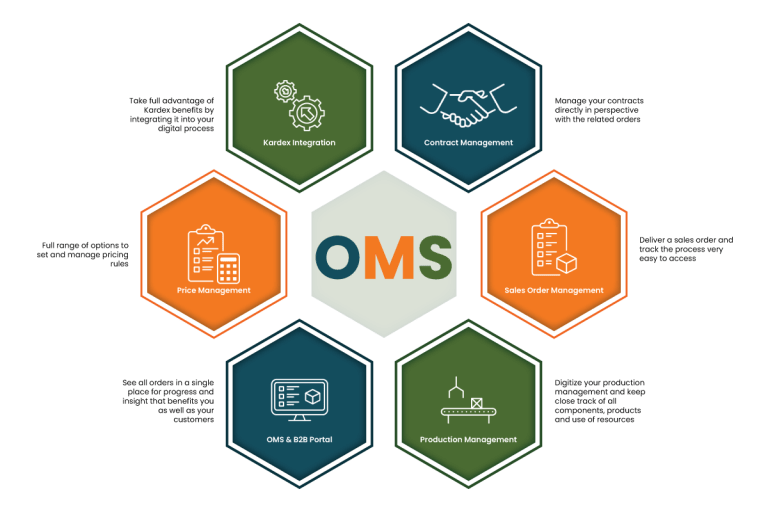Are you running a supply chain or warehouse business and struggling to achieve optimized operational efficiency? Or searching for an effective as well as time and cost-effective solution for enhanced order management efficiency? The implementation of an e-commerce OMS (order management system) is an ideal option for you.
Order management system implementation helps warehouse managers to improve order picking, shipping, tracking, and customer satisfaction. However, along with a myriad of potential benefits, it also comes with some limitations and drawbacks that are crucial Game Icon to understanding to make an informed decision. But, it’s safe to say that the pros outweigh the cons.
With that said, take a look at how implementing an OMS can help your warehouse business:
Benefits of Implementing an Order Management System
- Automation
An OMS automates the entire order processing cycle, from receiving and processing orders to fulfilling and delivering. It reduces heavy time consumption and also eliminates manual errors and mistakes.
Therefore, it not only increases operational efficiency and time management but also protects you from heavy fines or penalties.
- Real-time Inventory Management
Inventory management is one of the most crucial but complicated and time-consuming warehouse operations that can directly impact order fulfillment efficiency. However, the implementation of an order management system can significantly lower this burden.
An OMS provides warehouse managers with real-time updates on inventory levels and enables them to manage stock levels effectively. It reduces the risk of overstocking or understocking and also ensures the product’s availability even during peak season.
- Improved Order Fulfillment
Automation, tracking, and inventory management features of an OMS help it to ensure that orders are fulfilled accurately and on time. It eliminates the risk of unnecessary delays and wrong delivery. It results in protection from financial troubles, reducing downtime, and building customers’ trust, which is crucial to retaining potential buyers and enhancing the overall productivity of your business.
- Enhanced Visibility
Another significant advantage of An OMS is the enhanced visibility as it provides you with a centralized platform for monitoring orders, tracking progress, and making informed decisions. It allows you to track and identify bottlenecks and areas for improvement which automatically results in constant growth and increased market reputation.
- Reduce Employees Burden
An OMS minimizes manual labor through automation. It frees up warehouse staff’s precious time and allows them to focus on strategic tasks like marketing, sales, and customer service, resulting in better work quality, increased revenue generation, and constant growth.
- Incredible Scalability
An OMS can handle high volumes of orders, making it ideal for growing businesses. It can scale up or down to meet changing demands which results in eliminating the need for frequent upgrades and shifting to more advanced platforms.
- Customizable Workflows
A reliable OMS allows businesses to create custom workflows according to their unique needs and processes to ensure maximum operational efficiency and minimize risk factors.
- Integration
The most important benefit of a credible and correctly implemented OMS is that it can integrate with other systems like CRM, ERP, and e-commerce platforms. It results in seamless data exchange and reduces errors to ensure maximum efficiency and accuracy.
- Data Analytics
An OMS provider of warehouse managers with valuable insights into the order fulfillment process and real-time reports. Therefore, it enables you to optimize your warehouse operations, identify trends, and make data-driven decisions.
- Cost Savings
An OMS reduces costs associated with manual errors, inventory management, and order fulfillment. It also helps reduce shipping costs by optimizing delivery routes and modes.
Are There Any Cons?
- The implementation of an OMS is an expensive investment because it involves various costs that are not affordable for small businesses with limited budgets and resources.
- Employee training and ongoing support are crucial to ensure the smooth handling and maximum operational efficiency of OMS but it adds to the overall cost.
A Final Word
The implementation of an OMS comes with a set of potential benefits and also some drawbacks or limitations. It requires a heavy initial investment in terms of implementation and employee training costs but enables businesses to streamline their order management processes, reduce errors, and improve customer satisfaction, leading to increased efficiency, productivity, and profitability.
Therefore, it is worth investing in to achieve the desired level of order fulfillment efficiency even during the peak season.


